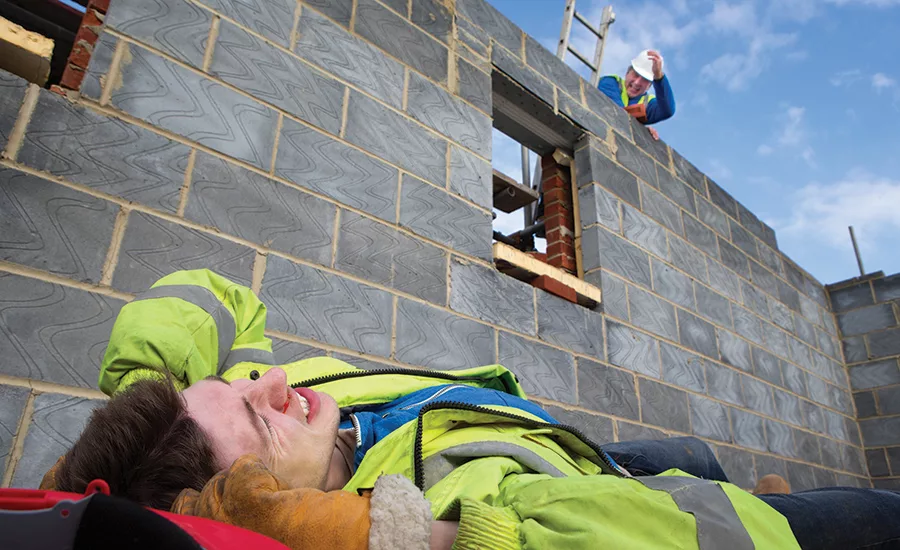IRE 2024 Session Preview
IRE Session Preview: Navigating the ‘Devil’s Triangle’
Understanding the overlap between the FMLA, ADA and workers’ compensation laws

One of the most common employment law mistakes made by roofing contractors is not knowing how to navigate through the intersection of the Americans with Disabilities Act (ADA), the Family Medical Leave Act (FMLA), and workers’ compensation laws when dealing with an injured employee or an employee with a medical condition that affects job performance.
Consider an all-too-common situation where a roofer is injured on the jobsite and can either not return to work for some time or can return to work but with restrictions. Not knowing what laws are implicated can easily result in filing a lawsuit seeking significant damages, potentially costing the company thousands of dollars in attorneys’ fees.
The roofing contractor must consider the ADA, the FMLA, and state workers’ compensation laws in the scenario above. The intersection and interplay between these three areas of the law are sometimes referred to as the “Devil’s Triangle” because of how easily one misstep can be costly to the company. The proper way to navigate the Devil’s Triangle is to know and understand the company’s obligations and the employee’s rights under each law, tackling each law one by one.
The Americans with Disabilities Act
The ADA provides employment protection only to employees who are considered qualified individuals with disabilities under the law. Employees with disabilities are considered “qualified” only if they can perform the essential functions of their job, with or without reasonable accommodation.
IRE 2024 Seminar Session
Title: “Oh! My Aching Back!” The Devil’s Triangle – Understanding FMLA, ADA and Workers’ Comp Overlap
Speaker: Philip Siegel; Member/Shareholder Hendrick, Phillips, Salzman & Siegel, PC
Date: 9:30-11 a.m., Wednesday, Feb. 7
Room: N233
Employees who cannot perform the essential functions of their job, with or without reasonable accommodation, are not entitled to the employment protection provided by the ADA. For example, if the employee cannot give a definitive date by which they will return to work and attendance is an essential function, the employee will not be entitled to the employment protection provided by the ADA.
What about the worker who comes back with work restrictions, making it impossible for the individual to perform the job they were hired for? In those instances, if light-duty work is available, the roofing contractor should consider providing the employee with light-duty work until they can return to the job they were hired for.
If no light-duty work is available, the company is not legally obligated to create a light-duty position. Roofing contractors are cautioned, however, to consider whether
allowing temporary, unpaid leave that would enable the employee to return to work is a reasonable accommodation that can be provided to the employee. Indeed, if the employee is entitled to FMLA benefits, that leave may be required.
Consider the FMLA
The FMLA allows covered employees working for companies subject to the FMLA up to 12 weeks of unpaid leave if they suffer from a serious health condition, as defined by the law. The FMLA also allows up to 12 weeks of unpaid leave for the following conditions: the birth of a child and to bond with the newborn child within one year of birth; to care for a newly placed adopted or foster child within one year of placement; and to care for the employee’s spouse, son, daughter, or parent who has a serious health condition.
Only employers with 50 or more employees are covered by the FMLA. For an employee to qualify for the unpaid leave provided by the FMLA, the employee must have worked for his or her employer for at least 12 months (the 12 months do not need to run consecutively); the employee must have worked at least 1,250 hours during the previous 12 month period; and the employee must be employed at a location where the company employs 50 or more employees within a 75-mile radius of that location.
Serious Health Conditions
In our original scenario involving the injured roofer who cannot return to work, this employee may be entitled to up to 12 weeks of unpaid leave under the FMLA to heal. Suppose the employer is subject to the FMLA, and the employee meets the pre-requisites to fall within the scope of the FMLA.
In that case, the question will become whether the employee’s medical condition or injury rises to the level of a “serious health condition.” If so, the employee will be entitled to up to 12 weeks of unpaid leave under the FMLA. If the issue does not involve a serious health condition, the employee is not entitled to the employment protection the FMLA provides.
Workers’ Compensation Laws
It may be that a workers' compensation claim covers an injury during employment or contracting an illness caused by the job. That same injury or illness may also qualify as a disability under the ADA, and it may also qualify as a serious health condition under the FMLA.
Importantly, however, worker’s compensation laws do not afford the employee any employment protection. Workers’ compensation laws do not provide any required leave time to injured or ill employees, and worker’s compensation laws do not require employers to provide any reasonable accommodation for the employee to perform the essential functions of his or her job.
While an employee may be suffering from a work-related injury subject to workers’ compensation insurance, if the employee is not protected under either the ADA or the FMLA, the employer would be in a position to terminate the injured employee’s employment rather than keep the employee on the payroll indefinitely until the employee can return to work.
What is clear from an overview of the intersection between the ADA, the FMLA, and workers’ compensation laws is that it is a dangerous intersection. There are many opportunities for accidents that can cost a roofing contractor thousands of dollars in defense costs and damages paid to the employee who successfully argues they have been discriminated against because of a disability or denied rights afforded under the law.
Looking for a reprint of this article?
From high-res PDFs to custom plaques, order your copy today!






